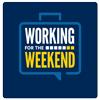Episode 207 – What is Causing the Housing Crisis?
On this episode of the Business and Society podcast, Brian Connolly, assistant professor of business law, and Jennifer Erb-Downward, director of housing stability programs and policy initiatives at the University of Michigan Poverty Solutions, join to discuss their research and thoughts on the housing crisis. Connolly and Erb-Downward explore topics like rising rent, home pricing, gentrification, and more. Throughout the discussion, the panel explores research and insights on the causes of the housing crisis, some adverse effects on the average American, and its implications for the upcoming presidential election.
One major challenge facing the housing market is rent. Per numerous sources, roughly 20 million renter-occupied households qualify as being cost-burdened by housing, meaning they spend approximately 30% of their pre-tax income on rent. Throughout the discussion, Connolly and Erb-Downward identify several factors contributing to this struggle.
Connolly and Erb-Downward agreed that renters face challenges of quantity and quality. First, there are simply not enough rental properties. Second, many unfunctional properties are still counted as rentable units despite their unlivable condition, giving policymakers and business leaders an inaccurate picture of supply.
“I think there's also a misunderstanding, particularly in low-income communities, about the housing supply from the standpoint of quality. We talk about the degradation of older housing and the loss of housing units. But then when we look at information, say from the census or other sources, a lot of times those older units will still be counted in that supply even if they are unlivable because we don't have a good way of tracking livable housing, and that's a really important piece of the equation when we're thinking about people's actual access to housing supply,” shared Erb-Downward.
Connolly shares that quality is not the only statistical anomaly in the housing crisis. He explores that although 20 million renter-occupied households meet the 30% of income rent-burdened status, a significant portion of that population uses more than 50% of their income on housing costs. This shows that skyrocketing rent prices are affecting a large population of Americans worse than the reporting would have policymakers and business leaders believe.
Erb-Downward shared that such extreme housing cost burdens have some detrimental effects on mental health, education outcomes, and social-emotional development. Particularly as the largest group of people experiencing homelessness and non-permanent housing are children.
Another implication of the current housing crisis is its effect on the 2024 U.S. presidential election. As Connolly explains in the episode, housing is usually more of a local political concern. However, as recently shown in the Michigan Ross Financial Times poll, housing is more significant in this election than in years past.
“If there is any bipartisan issue, it might be housing right now because when we look across the country, and we see actions that different states are taking and whether it's a red or a blue state, they look fairly similar,” said Connolly. “It just goes to show how nationalized this issue has become. [Housing] was a crisis in a few coastal markets just a few years ago, and now it's an issue that people are thinking about nationally.”
The episode closes with a discussion on the increased cost of living in major cities like New York, Los Angeles, and Chicago. The cost of living challenges that have struck these cities serve as a warning for so-called “up-and-coming” cities like Detroit and Ann Arbor. The panel discusses how the lessons of cost of living increases, gentrification, and real estate development can shape the future of urban planning, the real estate industry, and public policy in our backyard and nationwide.
Have thoughts about topics we should cover?
Send us an email at [email protected].
Want to hear more from Ross students, faculty, and alumni?
Check out more of our podcasts.
 Business Beyond Usual: Full-time MBA students at Michigan Ross tackle burning issues on campus and the world beyond. In every episode, the student hosts discuss a topic of importance for current and prospective students through interviews with current students, alumni, faculty, and administrators.
Business Beyond Usual: Full-time MBA students at Michigan Ross tackle burning issues on campus and the world beyond. In every episode, the student hosts discuss a topic of importance for current and prospective students through interviews with current students, alumni, faculty, and administrators.
 Working for the Weekend: A deep dive into the daily life of part-time MBAs at Michigan Ross. Weekend and online MBA students discuss their experiences and advice for prospective and current students.
Working for the Weekend: A deep dive into the daily life of part-time MBAs at Michigan Ross. Weekend and online MBA students discuss their experiences and advice for prospective and current students.
 Down to Business: Join Dean Sharon Matusik as she interviews Michigan Ross alums in the C-Suite to learn how Ross set them on a path to organizational leadership.
Down to Business: Join Dean Sharon Matusik as she interviews Michigan Ross alums in the C-Suite to learn how Ross set them on a path to organizational leadership.
About the participants
Host: Jeff Karoub
Producers: JT Godfrey and Jeff Karoub
Guests: Brian Connolly and Jennifer Erb-Downward
Audio Engineer: Jonah Brockman







